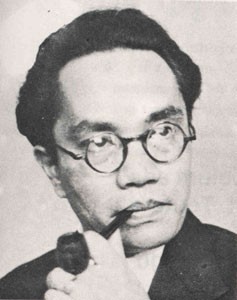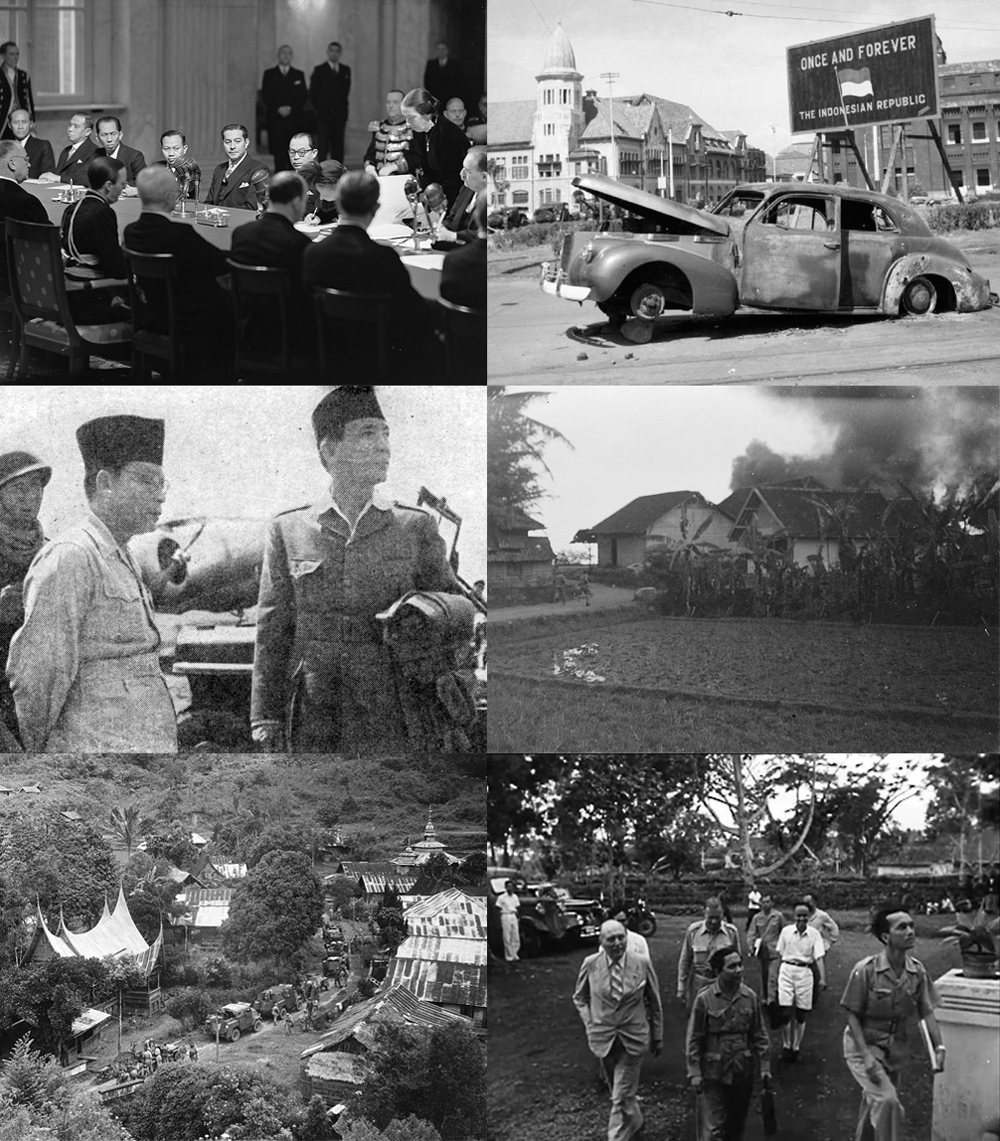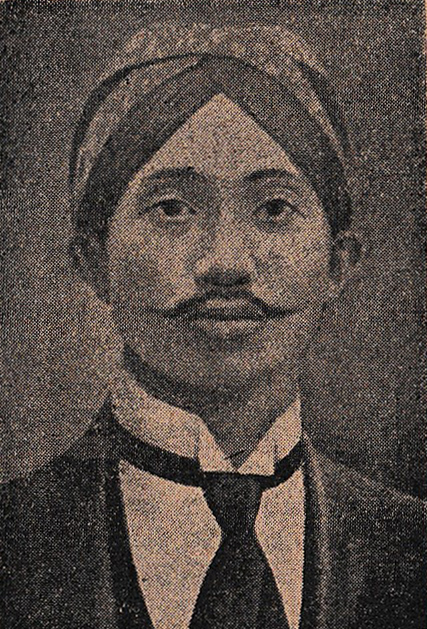|
Soekiman
Soekiman Wirjosandjojo ( EYD: Sukiman Wiryosanjoyo; 19June 1898 – 23July 1974) was an Indonesian politician and physician who served as prime minister of Indonesia from 1951 until 1952. A member of the Masyumi Party, he also served as the party's first chairman. Born into a merchant family in Surakarta, Soekiman was educated as a physician at Batavia's STOVIA medical school and at Amsterdam University. Having served as chairman of the ''Perhimpoenan Indonesia'' association while in the Netherlands, he returned to Java and began participating in politics while working as a doctor. He was active within the Islamic political organization Sarekat Islam, although he was expelled in 1933 due to a dispute and founded his own Islamic political party. During the Japanese occupation of the Dutch East Indies, he was active within the Pusat Tenaga Rakyat propaganda organization, and in 1945 was appointed a member of the Investigating Committee for Preparatory Work for Independence. ... [...More Info...] [...Related Items...] OR: [Wikipedia] [Google] [Baidu] |
Masyumi
The Council of Indonesian Muslim Associations ( id, Partai Majelis Syuro Muslimin Indonesia), better known as the Masyumi Party, was a major Islamic political party in Indonesia during the Liberal Democracy Era in Indonesia. It was banned in 1960 by President Sukarno for supporting the PRRI rebellion. Background In 1909, a trade organization called the Islamic Trading Association ( id, Sarekat Dagang Islam) was established in Java, then part of the Dutch East Indies to protect the interests of batik traders in the face of competition from ethnic Chinese merchants. In 1912, this became the Sarekat Islam (Islamic Union), and was headed by western-educated Oemar Said Tjokroaminoto. Although it began as a non-political organization, it began to speak out against injustice and poverty. By 1918, it had 450,000 members. Communist influence within it grew, but so did that of the reformist Islamic Muhammadiyah organization, which was anti-communist. In 1920, Muhammadiyah merged into S ... [...More Info...] [...Related Items...] OR: [Wikipedia] [Google] [Baidu] |
Masyumi Party
The Council of Indonesian Muslim Associations ( id, Partai Majelis Syuro Muslimin Indonesia), better known as the Masyumi Party, was a major Islamic political party in Indonesia during the Liberal Democracy Era in Indonesia. It was banned in 1960 by President Sukarno for supporting the PRRI rebellion. Background In 1909, a trade organization called the Islamic Trading Association ( id, Sarekat Dagang Islam) was established in Java, then part of the Dutch East Indies to protect the interests of batik traders in the face of competition from ethnic Chinese merchants. In 1912, this became the Sarekat Islam (Islamic Union), and was headed by western-educated Oemar Said Tjokroaminoto. Although it began as a non-political organization, it began to speak out against injustice and poverty. By 1918, it had 450,000 members. Communist influence within it grew, but so did that of the reformist Islamic Muhammadiyah organization, which was anti-communist. In 1920, Muhammadiyah merged into ... [...More Info...] [...Related Items...] OR: [Wikipedia] [Google] [Baidu] |
List Of Ministers Of Home Affairs (Indonesia)
This article lists persons and politicians who have been appointed as the Minister of Home Affairs in Indonesia. References Bibliography * {{List of ministers of Indonesia Lists of political office-holders in Indonesia Interior ministers of Indonesia ... [...More Info...] [...Related Items...] OR: [Wikipedia] [Google] [Baidu] |
Suwiryo
Suwiryo ( EVO: Soewirjo; 17 February 1903 – 27 August 1967) was an Indonesian politician. He served as the first Mayor of Jakarta following the proclamation of Indonesian independence from 1945 until 1947 and again from 1950 until 1951. Additionally, he served as Deputy Prime Minister of Indonesia under Prime Minister Soekiman Wirjosandjojo from 1951 until 1952. A member of the Indonesian National Party, he was also the party's sixth chairman, serving from 1956 until his ousting by Ali Sastroamidjojo in 1960. Early life Suwiryo was born in Wonogiri, Dutch East Indies (now Indonesia), on 17 February 1903. After completing his education, he worked at the central statistical body, became a teacher, worked at an insurance company, and founded a pharmaceutical business. He became a participant in the Indonesian National Party, and upon its dissolution in 1931, was one of the co-founders of the succeeding Indonesia Party. During the Japanese occupation of the Dutch East Ind ... [...More Info...] [...Related Items...] OR: [Wikipedia] [Google] [Baidu] |
Wilopo
Wilopo ( ; 21 October 1909 – 1 June 1981) was an Indonesian politician and lawyer of the Indonesian National Party (PNI), who served as the seventh prime minister of Indonesia from his appointment in April 1952 until his resignation in June 1953. Generally considered a member of the PNI's liberal wing, Wilopo's cabinet was described as "bolder and more ambitious than any other cabinet of the post-revolutionary period". Wilopo was born to a Muslim family in Purworejo, in what was then the Dutch East Indies (now Indonesia). He attended the '' Technischeh Hoge School'' in Bandung, before dropping out due to asthma. In 1930, he became a teacher at a Taman Siswa school, before entering the '' Rechts Hogeschool'' (RHS) three years later. In the RHS, Wilopo became involved in the struggle for Indonesia's independence, taking an attitude of "no-cooperation" towards the colonial government. After graduating in 1939, he became an unlicensed solicitor. Following the proclamation of ind ... [...More Info...] [...Related Items...] OR: [Wikipedia] [Google] [Baidu] |
Amir Sjarifuddin
Amir Sjarifuddin Harahap ( EVO: Amir Sjarifoeddin Harahap; 27 April 1907 – 19 December 1948) was an Indonesian politician and journalist who served as the second prime minister of Indonesia from 1947 until 1948. A major leader of the left-wing during the Indonesian National Revolution, he previously served as Minister of Information from 1945 until 1946 and Minister of Defense from 1945 until 1948. Amir was born into the Sumatran aristocracy, and was educated at Leiden University. At Leiden, he became a member of the board of the Gymnasium student association in Haarlem, and was involved in the Batak student organization '' Jong Batak''. He returned to Indonesia due to family troubles, but continued his education at the '' Rechts Hogeschool'' in Batavia. After graduating, he became active in literary and journalist circles, joining the editorial board of the newspaper ''Panorama''. He also became involved with left-wing politics, and led a group of younger Marxist ... [...More Info...] [...Related Items...] OR: [Wikipedia] [Google] [Baidu] |
Mohammad Natsir
Mohammad Natsir (17 July 19086 February 1993) was an Islamic scholar and politician. He was Indonesia's fifth List of Prime Ministers of Indonesia, prime minister. After moving to Bandung from his hometown Solok, West Sumatra for senior high school, Natsir studied Islamic doctrine extensively. His first articles were published in 1929, and during the 1930s he wrote for several Islamic-themed papers. He entered politics in the mid-1930s, rising through the ranks of Islamic parties. On 5 September 1950, he was chosen as prime minister, a term which he served until 26 April 1951. After his term as prime minister, he became increasingly vocal about Islam's role in Indonesia and was eventually arrested for doing so. Released in 1966 after the New Order (Indonesia), New Order government took power, Natsir continued to be critical of the government, eventually leading to him being banned from traveling. He died in his home in Jakarta, on 6 February 1993. Natsir wrote extensively on Isla ... [...More Info...] [...Related Items...] OR: [Wikipedia] [Google] [Baidu] |
Indonesian National Revolution
The Indonesian National Revolution, or the Indonesian War of Independence, was an armed conflict and diplomatic struggle between the Republic of Indonesia and the Dutch Empire and an internal social revolution during Aftermath of WWII, postwar and Dutch East Indies#World War II and independence, postcolonial Indonesia. It took place between Indonesian Declaration of Independence, Indonesia's declaration of independence in 1945 and the Netherlands' Dutch–Indonesian Round Table Conference, transfer of sovereignty over the Dutch East Indies to the Republic of the United States of Indonesia at the end of 1949. The four-year struggle involved sporadic but bloody armed conflict, internal Indonesian political and communal upheavals, and two major international diplomatic interventions. Dutch military forces (and, for a while, the forces of the World War II Allies, World War II allies) were able to control the major towns, cities and industrial assets in Republican heartlands on Ja ... [...More Info...] [...Related Items...] OR: [Wikipedia] [Google] [Baidu] |
Japanese Occupation Of The Dutch East Indies
The Empire of Japan occupied the Dutch East Indies (now Indonesia) during World War II from March 1942 until after the end of the war in September 1945. It was one of the most crucial and important periods in modern Indonesian history. In May 1940, Germany occupied the Netherlands, and martial law was declared in the Dutch East Indies. Following the failure of negotiations between the Dutch authorities and the Japanese, Japanese assets in the archipelago were frozen. The Dutch declared war on Japan following the 7 December 1941 Attack on Pearl Harbor. The Japanese invasion of the Dutch East Indies began on 10 January 1942, and the Imperial Japanese Army overran the entire colony in less than three months. The Dutch surrendered on 8 March. Initially, most Indonesians welcomed the Japanese as liberators from their Dutch colonial masters. The sentiment changed, however, as between 4 and 10 million Indonesians were recruited as forced labourers ('' romusha'') on economic deve ... [...More Info...] [...Related Items...] OR: [Wikipedia] [Google] [Baidu] |
Sarekat Islam
Sarekat Islam or Syarikat Islam ( 'Islamic Association' or 'Islamic Union'; SI) was an Indonesian socio-political organization founded at the beginning of the 20th Century during the Dutch colonial era. Initially, SI served as a cooperative of Muslim Javanese batik traders to compete with the Chinese-Indonesian big traders. From there, SI rapidly evolved into a nationalist political organization that demanded self-governance against the Dutch colonial regime and gained wide popular support. SI was especially active during the 1910s and the early 1920s. By 1916, it claimed 80 branches with a total membership of around 350,000. SI was eventually embroiled in an internal conflict between the Islamic moderates and the radical communist members who urged firmer anti-colonialist and anti-capitalist actions. In 1921, the organization was split and communist members founded a separate entity known as the Sarekat Islam Merah (Red Islamic Association) which was absorbed into the Communi ... [...More Info...] [...Related Items...] OR: [Wikipedia] [Google] [Baidu] |
Netherlands
) , anthem = ( en, "William of Nassau") , image_map = , map_caption = , subdivision_type = Sovereign state , subdivision_name = Kingdom of the Netherlands , established_title = Before independence , established_date = Spanish Netherlands , established_title2 = Act of Abjuration , established_date2 = 26 July 1581 , established_title3 = Peace of Münster , established_date3 = 30 January 1648 , established_title4 = Kingdom established , established_date4 = 16 March 1815 , established_title5 = Liberation Day (Netherlands), Liberation Day , established_date5 = 5 May 1945 , established_title6 = Charter for the Kingdom of the Netherlands, Kingdom Charter , established_date6 = 15 December 1954 , established_title7 = Dissolution of the Netherlands Antilles, Caribbean reorganisation , established_date7 = 10 October 2010 , official_languages = Dutch language, Dutch , languages_type = Regional languages , languages_sub = yes , languages = , languages2_type = Reco ... [...More Info...] [...Related Items...] OR: [Wikipedia] [Google] [Baidu] |
_di_Republik_Indonesia%2C_p192.png)






